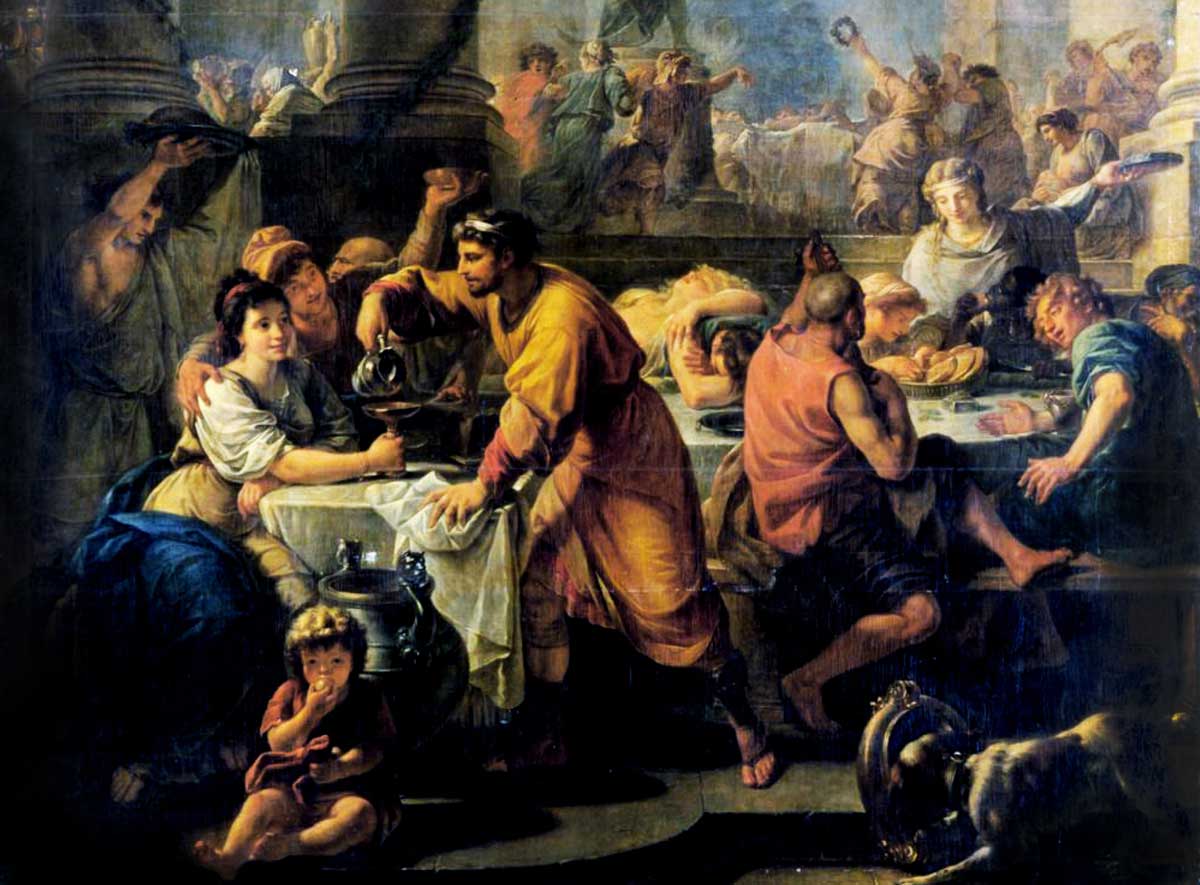You might think with a year-long pandemic - things at the library quieted down right quick by late January - I would find more time to read. Also, that my early year surgery that forced me to stay home for most of a month would leave me with that kind of time as well. Sad to note: the level of anxiety and stress in the midst of all that kind of reduced my reading habits this year. It wasn't I did not have the time - no longer wasting weekends at the movies, for one - it was that I lost a lot of focus to read. I'm sorry.
I did read *some* this year, and so in that regards I will list what I read as suggested reads to pass along to the seven people who follow this blog, thank ye. It's just... honestly? This wasn't a competitive year...
Best Fiction
My rules on what I like each year isn't that the work HAS to be from this year - I do try - sometimes it's an older published work I re-visit that regains my interest. That said:
Monstrous Regiment, by Terry Pratchett
Another of the Discworld books I've become fond of, this is one of the later works where Pratchett's world-building - especially the fantastic politics of the various nation-states engaged in border clashes - expands to make it a more realized realm. On Discworld, the Narrative matters and the Gods are real. The problem with the small nation of (looks it up) Borogravia is that their god Nuggan has gone mad, been mad for ages, and His insane proclamations have weakened the faith of the population, which still has to abide against his Abominations. It's led to a state of constant war with neighboring kingdoms, which has also led to the literal depletion of Borogravia's manpower... to the point where the young women are signing up for the latest war in order to get into (or out of) conflict to rescue their loved ones. Or so it seems.
Playing on the trope of Sweet Polly Oliver - with an actual Polly (this is how Discworld rolls, son) as the protagonist - the main characters find themselves the last standing military unit against Zlobenia. Relying on the military tropes as both parody and metaphor, the lads (or ladettes, however the case may be) must rely on their innate skills - vampire, troll, Igor, Joan of Archetype, what have you... just not their feminine ones, which becomes a plot point later - to break the cycle of madness (and free a soul they don't realize has been trapped by faith) and end the war.
Where the book excels is Pratchett's subtle yet elaborate wordplay, and his willingness to tweak tropes for all they're worth. For example the vampire Maladict (whom Polly thinks is the only real man in her regiment) had traded out the addiction for blood to an addiction for coffee (the mainstay of any marching army, what what). When one of the bad guys (yes, he's a guy) steals the regiment's supply, it forces Maladict into withdrawal mode, mimicking the shell-shocked Vietnam trooper with increasingly powerful hallucinations that Maladict can broadcast. It's in this confused state that Polly herself can imagine "Copters in the LZ" even though she has no idea what a 'Copter or an LZ is. It also allows her to hallucinate walking with Death (yes, he's a Reaper Man) because after all every soldier walks with Death (plus he's contractually obligated to appear in every Discworld story). It's just that Polly's the only one on Discworld who told Death to keep quiet while they walked.
It's not one of Pratchett's best Discworld novels (Small Gods, Guards Guards, and Hogfather are far superior works) but it's an enjoyable read that's easy to get into even if you're not a hardcore reader of the series.
Dishonorable Mention: The Jack Reacher series by Lee Child
I'm sorry, but... I tried, I really tried to read a number of these books about an ex-military MP who walks the Earth getting into violent adventures. But it's just... almost all the same damn thing. He shows up, gets into fights with the locals, uncovers a conspiracy, occasionally has sex with a woman tangibly involved in the matter, wipes out the big bad's merc army in a gunfight, sometimes heads off in an epilogue to take out a corrupt government official who violated the oath of service to America, and goes wandering off to the next book. Half the dialog isn't dialog it's just the narrator writing "(This character) said nothing." I guess it's like Mac and Cheese for a large number of readers, but it's just overheated Revenge Porn. The Punisher does it better, dammit.
Best Non-Fiction
Very Stable Genius, by Philip Rucker and Carol Leonnig
If you follow me on my political blog, you might notice I am not a fan of donald trump (I refuse to capitalize his name as English grammar requires. The SOB obsesses over his name's presentation and the smaller I can make it the better).
So a lot of non-fiction I've been reading the past four years have been "What The Hell Happened" history/political science books focusing on the disaster that has been the trump Administration. Very Stable Genius is coming towards the end of trump's one-term tenure, and it looks back at all of the chaos and damage that occurred. Most telling is the ninth chapter where Rucker and Leonnig detail how - in an attempt by the Defense and State Departments to explain to trump just what is actually happening in the world - trump hijacked the meeting to spew his unfounded diatribes about our foreign allies, which all ended with trump - a draft-dodging self-obsessed whiner - insulting military officials to their faces:
Trump by now was in one of his rages. He was so angry that he wasn't taking many breaths... "I wouldn't go to war with you people," Trump told the assembled brass. Addressing the room, the commander-in-chief barked, "You're a bunch of dopes and babies." For a President known for verbiage he euphemistically called "locker room talk," this was the gravest insult he could have delivered to these people, in this sacred place. The flag officers in the room were shocked. Some staff began looking down at their papers, rearranging folders, almost wishing themselves out of the room..." (p. 136)
You might notice the book's title - trump's own words describing himself (like 74 percent of anything he says, it's a lie) - is a sharp rebuke: Everything in the pages details how trump is an unstable, self-absorbed fool. And it's someone who was put in charge of the United States for four painful years.
There's going to be a lot of books written about this era. Rucker and Leonnig's book should be one of the first ones to reach for.
Runner-up: The Public And Its Problems, by John Dewey
As part of my efforts to keep up with Pragmatism as a philosophy, especially with an eye towards promoting it as a political philosophy to counter the darker (cough Randian Objectivist cough) ideologies consuming our nation. I'm still re-reading it to see what I can translate into modern world-view explanation.
Best Graphic Novel (or Ongoing Series)
Wonder Woman: Dead Earth (Black Label), by Daniel Johnson
Part of DC Comics' efforts to re-imagine their main characters with edgier, more mature stories, the Black Label brand includes this retelling of Wonder Woman in a post-apocalyptic future where she emerges to find her attempts to save the World of Men had failed. Worse, the nuclear war that consumed the planet had turned her paradise into a monstrous realm that has abandoned any hope of peace at all.
In the same narrative take as Sejic's dark vision on Harleen, Johnson as writer/artist employs a stark and harsh art style similar in my mind to Frank Miller's work. It's the first time I've seen his artwork and I am impressed by it. I am going to keep an eye out for future works.
Runner-up: Solutions and Other Problems, by Allie Brosh
It took about 7 years, but Brosh returned with a follow-up to her Hyperbole And a Half with another essay-styled series of comics about the everyday dramas of coping with the world. Where the earlier book's artwork was crudely pixelated work (the strength of the stories is Brosh's writing and observations), the new work is cleaner, sharper in tone as the writing itself gets sharper with experience.
Best Work by Someone I Email, Tweet, or Chat With on a Regular Basis
The Last Emperox, by John Scalzi
Keeping up with Scalzi's Interdependency trilogy, which I started reading back in 2017 with The Collapsing Empire, the third and final volume focuses on the eventual collapse of a naturally-occurring hyperspace system (The Flow) and how it affects a galactic-wide human empire suddenly forced to find other ways to survive.
Intermixed with the efforts to discover the new portals to a shifting Flow network, Scalzi's main characters have to contend with the political backstabbing of an empire still driven by intrigue and ambition, where the bad guys from the first two novels have succeeded in seizing control of the one planet (End, literally at the end of the Flow) that has a sustainable human environment and are gathering the other Houses to overthrow Empress (well, Emperox to avoid the gender bias) Grayland and condemn billions of humans who need to reach End.
Some of the characters - including the villains - remain rather predictable playing out their roles in a Space Opera environs (did one of the baddies twirl a mustache at one point?). Scalzi still crafts a believable 'Verse with relatable characters and satisfying plot twists. There's no new ground really broken here - the themes of humanity, futurism, our relationship to the environment, these are all regular tropes of most science fiction - but it's a story well-told.
Expect the SyFy miniseries in the next two-three years.
Best Work Including Stuff I Wrote
I did not get published this year, alas. Self-publishing even one of my short works seemed... wrong. I am struggling to keep my head in the writing game... I may have something published by next year, we will see.





























